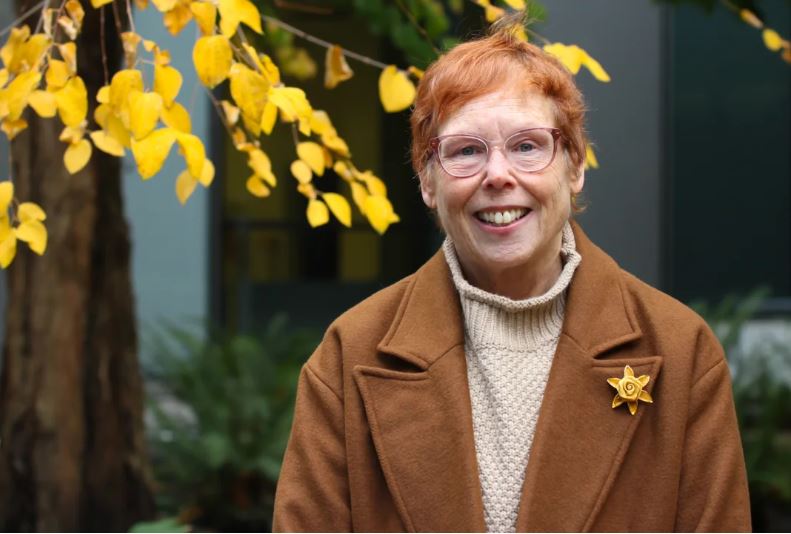UW researcher on cancer vaccines and gender equity in innovation

Mary “Nora” Disis is a professor in the University of Washington’s Department of Medicine, a member of the clinical research division of UW’s Fred Hutch Cancer Center, and director of the Cancer Vaccine Institute at UW Medicine. Her team works to investigate DNA-based vaccines and cellular therapies for common cancers, including breast and ovarian cancer, and recently completed the first phase of a successful clinical trial testing a vaccine designed to prevent the recurrence of breast cancer and keep patients alive longer. She’s also an entrepreneur, having worked with CoMotion to launch a startup and obtain several patents in targeted cancer therapy.
She spoke with CoMotion about her three-decade career and what she’s learned about gender equity in the innovation landscape.
CoMotion: Can you tell me how you got into cancer research and breast cancer in particular?
Nora Disis: When I started, I was the only female oncology fellow in my class, and I was assigned to the breast cancer clinic I think because it was felt, at the time, that female patients would be more comfortable with a woman. At that time, I was trying to figure out whether the immune system even recognized cancer, so I would go to the clinic with a bunch of test tubes and syringes and ask my patients if they’d be interested in donating blood for immunology research.
CoMotion: What’s your lab working on now?
ND: The most recent progress has been in figuring out the best type of vaccine to use for immunization. In general, when people talk about cancer vaccines and antigens, or the immunogenic proteins you put into cancer vaccines, there are two types: mutated antigens and non-mutated antigens. A mutation makes the antigen look foreign to the immune system, eliciting a tissue-destructive immune response that attacks highly mutated tumors such as melanoma or non-small-cell lung cancer. Over the last several years we’ve figured out, using a combination of artificial intelligence and high-throughput screening approaches, how to identify segments of non-mutated proteins that selectively elicit an inflammatory immune response. Most common solid tumors like breast cancer and prostate cancer do not contain high levels of mutations, so non-mutated proteins are the dominant antigens.
Much like with the COVID mRNA vaccines, these DNA vaccines are relatively straightforward and inexpensive to manufacture. Ten years ago, getting a vaccine from conception to clinic would take 10 years. . Today we can do it in 18 months.”
CoMotion: Broadly, what challenges do you see women facing in research and innovation?
ND: Looking back 25 years, there were very few women faculty that I could look up to or have as mentors. Other faculty members were either paternalistic with me or they were outright hostile, like ‘Why are you here?’ This microaggression issue has gotten better over time but it’s still there. And women are still greatly challenged by having to balance a personal and professional life, as women still tend to be more involved in childcare and household affairs. I’ve mentored many a brilliant woman scientist whose success was impeded by the pressures of that dual role. The infrastructure to support these women is absolutely not there, and I have not seen one iota of progress in trying to put it there.
When I was younger and meeting older female faculty, they always told me, ‘If you want to be successful, don’t have kids,’ which is the most ridiculous thing I ever heard. In fact, I would say if you want to be successful, DO have kids, because it diffuses all the crazy energy that you would otherwise focus solely on yourself. It gives you more balance and makes you realize there are a lot bigger things in this world than your career, which I think makes you have a better career.
CoMotion: What advice do you have for early-career women innovators?
ND: You can have it all, but it’s not a passive process. When I was first starting, every six months or so I would stop what I was doing, take an hour, and make a list with two columns: What do you hope to accomplish professionally in the next three to five years? And what do you hope to accomplish personally? Be as specific as you can. And then pull back, come back to the list a few days later, and see if those two columns sync. And if they don’t, you have to make some decisions and learn to say no sometimes. If you do that on a regular basis, you can get through life and it won’t kill you. And you’ll have more fun than you can even imagine.